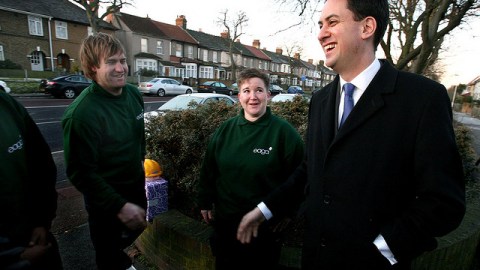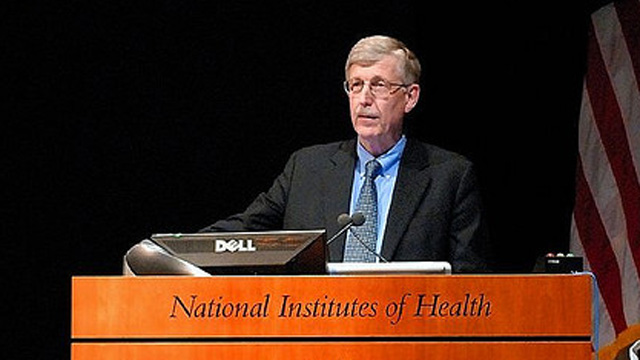Ed Miliband: We Called The Result Here First

Three days ago, I predicted here that Ed Miliband would be elected leader of the UK Labour Party. He was, and on the narrowest of margins. Ed Miliband is of course an unknown quantity in America, although he studied as a Fulbright Scholar earlier in the decade. Labour are of course in Opposition, so Miliband, aged 40, is unlikely to figure much in political discourse in the US. But his election in Britain has upset the political Establishment, who were gunning for his older brother David. For in Britain in 2011, there is remarkably little space for anything, or anyone who stands marginally to the left of what is determined the ‘centre ground’, ground that has been occupied by the neo liberal Right for the best part of a quarter of a century.
He’s already been nicknamed ‘Red Ed’, apparently because he stands fractionally to the Left of his brother David.
And yes, it is true that he will be joining for Labour leader, Neil Kinnock, to give one of his first speeches as Labour leader to the Left-wing Tribune rally at the party’s conference on Tuesday.
But if Ed Miliband is a full-blown socialist and paid-up member of the awkward squad, I have yet to see any hard evidence. He provides Labour with a much-needed lease of life and an opportunity to finally dump all of the baggage from the Tony Blair and Gordon Brown era.
Unlike Blair, young Ed grew up in a Left-wing family, his father Ralph a noted Marxist academic, his mother an active campaigner.
He will not therefore see the need to gratuitously offend so many of his mature supporters. In fact he will be sensible to reach out to them. But he also understands how important it is to reach out beyond Labour’s comfort zone to those who don’t vote, and those who do but support other parties.
Unlike his brother David, he didn’t have any political scars to bear from the Iraq War. Nor was he tainted by being associated with some of the worst extremities of Blair and of the spin-doctor culture that surrounded him.
Unlike Ed Balls, another leadership candidate, this Ed is not damaged either by his relationship with the tortured figure of Brown.
To establish himself quickly he needs to dispel the notion that the last Government is responsible for all of Britain’s economic ills and lay the blame squarely on the bankers and a financial system that got out of control.
He will need to expose and unpick the Coalition, not for the sake of it, but when and where the public clearly demand it. If he can construct an economic strategy built on jobs and growth with our economic partners in Europe he could soon leave Cameron and Clegg looking isolated.
He may be young, he may have risen extremely quickly through Labour’s ranks, but Ed Miliband already has a wealth of experience – as a backbench MP for a tough mining constituency in South Yorkshire and as a former Environment Minister.
He has grown in stature, especially over the past four months – tough, gruelling months – where he succeeded in building a professional campaign and gaining the support of a diverse group of supporters of all shades of opinion, from Left to Right.
If anyone is able to reach out to disaffected Lib Dems and, ultimately, Conservatives too, Ed Miliband stands the best chance. He lacks the shallow superficiality of Blair and, in these times when politicians increasingly sound alike, will be able to strike a very different note to that of Cameron and Clegg.
Of course Ed Miliband faces enormous hurdles. His party is weak and it is broke. The Coalition he faces is not set on imploding any time soon. His toughness and resilience will be tested from day one. But if he can lead decisively, and without feeling the need to beat up on his own party, he will begin to regain the five million voters Labour has lost since 1997.
If he can broaden his appeal – as he has just proved he is capable of doing – to build a broad new coalition of his own, the keys to Downing Street may one day be in his hands.





